- Home
- Herman Melville
Herman Melville- Complete Poems
Herman Melville- Complete Poems Read online
HERMAN MELVILLE
COMPLETE POEMS
Battle-Pieces and Aspects of the War
Clarel: A Poem and Pilgrimage in the Holy Land
John Marr and Other Sailors with Some Sea-Pieces
Timoleon Etc.
Weeds and Wildings Chiefly: with A Rose or Two
Parthenope
Uncollected Poetry and Prose-and-Verse
Hershel Parker, editor
LIBRARY OF AMERICA E-BOOK CLASSICS
HERMAN MELVILLE: COMPLETE POEMS
Volume compilation, notes, and chronology copyright © 2019 by
Literary Classics of the United States, Inc., New York, N.Y.
All rights reserved.
No part of this book may be reproduced in any manner whatsoever without
the permission of the publisher, except in the case of brief
quotations embodied in critical articles and reviews.
Published in the United States by Library of America
Visit our website at www.loa.org.
Published Poems copyright © 2009 by Northwestern University Press and
The Newberry Library. Published 2009. All rights reserved.
Clarel copyright © 1991 by Northwestern University Press
and The Newberry Library. All rights reserved.
Billy Budd, Sailor and Other Uncompleted Writings copyright © 2017 by
Northwestern University Press and The Newberry Library. Published 2017.
All rights reserved.
Maps in back matter
copyright © 2019 by Lucidity Information Design, LLC.
Distributed to the trade in the United States
by Penguin Random House Inc.
and in Canada by Penguin Random House Canada Ltd.
Library of Congress Control Number: 2018962316
eISBN 978–1–59853–619–5
The Library of America—320
Herman Melville:
Complete Poems
is published with support from
THE ACHELIS & BODMAN FOUNDATION
AND
THE POETRY FOUNDATION
HERSHEL PARKER
WROTE THE NOTES AND CHRONOLOGY
AND SELECTED THE TEXTS
FOR THIS VOLUME
ROBERT A. SANDBERG
WROTE THE NOTE ON THE TEXTS
Contents
(Each section has its own table of contents.)
BATTLE-PIECES AND ASPECTS OF THE WAR
CLAREL: A POEM AND PILGRIMAGE IN THE HOLY LAND
JOHN MARR AND OTHER SAILORS WITH SOME SEA-PIECES
TIMOLEON ETC.
WEEDS AND WILDINGS CHIEFLY: WITH A ROSE OR TWO
PARTHENOPE
UNCOLLECTED POETRY AND PROSE-AND-VERSE
Maps to Clarel
Chronology
Note on the Texts
Notes
Index of Titles and First Lines
BATTLE-PIECES
AND
ASPECTS OF THE WAR
THE BATTLE-PIECES
IN THIS VOLUME ARE DEDICATED TO THE MEMORY OF
THE
THREE HUNDRED THOUSAND
WHO IN THE WAR
FOR THE MAINTENANCE OF THE UNION
FELL DEVOTEDLY
UNDER THE FLAG OF THEIR FATHERS
WITH FEW EXCEPTIONS, the Pieces in this volume originated in an impulse imparted by the fall of Richmond. They were composed without reference to collective arrangement, but, being brought together in review, naturally fall into the order assumed.
The events and incidents of the conflict—making up a whole, in varied amplitude, corresponding with the geographical area covered by the war—from these but a few themes have been taken, such as for any cause chanced to imprint themselves upon the mind.
The aspects which the strife as a memory assumes are as manifold as are the moods of involuntary meditation—moods variable, and at times widely at variance. Yielding instinctively, one after another, to feelings not inspired from any one source exclusively, and unmindful, without purposing to be, of consistency, I seem, in most of these verses, to have but placed a harp in a window, and noted the contrasted airs which wayward winds have played upon the strings.
CONTENTS
The Portent
Misgivings
The Conflict of Convictions
Apathy and Enthusiasm
The March into Virginia
Lyon
Ball’s Bluff
Dupont’s Round Fight
The Stone Fleet
Donelson
The Cumberland
In the Turret
The Temeraire
A Utilitarian View of the Monitor’s Fight
Shiloh
The Battle for the Mississippi
Malvern Hill
The Victor of Antietam
Battle of Stone River, Tennessee
Running the Batteries
Stonewall Jackson
Stonewall Jackson (Ascribed to a Virginian)
Gettysburg
The House-top
Look-out Mountain
Chattanooga
The Armies of the Wilderness
On the Photograph of a Corps Commander
The Swamp Angel
The Battle for the Bay
Sheridan at Cedar Creek
In the Prison Pen
The College Colonel
The Eagle of the Blue
A Dirge for McPherson
At the Cannon’s Mouth
The March to the Sea
The Frenzy in the Wake
The Fall of Richmond
The Surrender at Appomattox
A Canticle
The Martyr
“The Coming Storm”
Rebel Color-bearers at Shiloh
The Muster
Aurora-Borealis
The Released Rebel Prisoner
A Grave near Petersburg, Virginia
“Formerly a Slave”
The Apparition
Magnanimity Baffled
On the Slain Collegians
America
VERSES INSCRIPTIVE AND MEMORIAL
On the Home Guards who perished in the Defense of Lexington, Missouri
Inscription for Graves at Pea Ridge, Arkansas
The Fortitude of the North under the Disaster of the Second Manassas
On the Men of Maine killed in the Victory of Baton Rouge, Louisiana
An Epitaph
Inscription for Marye’s Heights, Fredericksburg
The Mound by the Lake
On the Slain at Chickamauga
An uninscribed Monument on one of the Battle-fields of the Wilderness
On Sherman’s Men who fell in the Assault of Kenesaw Mountain, Georgia
On the Grave of a young Cavalry Officer killed in the Valley of Virginia
A Requiem for Soldiers lost in Ocean Transports
On a natural Monument in a field of Georgia
Commemorative of a Naval Victory
Presentation to the Authorities, by Privates, of Colors captured in Battles ending in the Surrender of Lee
The Returned Volunteer to his Rifle
THE SCOUT TOWARD ALDIE
LEE IN THE CAPITOL
A ME
DITATION
NOTES
SUPPLEMENT
The Portent
(1859)
Hanging from the beam,
Slowly swaying (such the law),
Gaunt the shadow on your green,
Shenandoah!
The cut is on the crown
(Lo, John Brown),
And the stabs shall heal no more.
Hidden in the cap
Is the anguish none can draw;
So your future veils its face,
Shenandoah!
But the streaming beard is shown
(Weird John Brown),
The meteor of the war.
Misgivings
(1860)
WHEN ocean-clouds over inland hills
Sweep storming in late autumn brown,
And horror the sodden valley fills,
And the spire falls crashing in the town,
I muse upon my country’s ills—
The tempest bursting from the waste of Time
On the world’s fairest hope linked with man’s foulest crime.
Nature’s dark side is heeded now—
(Ah! optimist-cheer disheartened flown)—
A child may read the moody brow
Of yon black mountain lone.
With shouts the torrents down the gorges go,
And storms are formed behind the storm we feel:
The hemlock shakes in the rafter, the oak in the driving keel.
The Conflict of Convictions a
(1860–1)
ON starry heights
A bugle wails the long recall;
Derision stirs the deep abyss,
Heaven’s ominous silence over all.
Return, return, O eager Hope,
And face man’s latter fall.
Events, they make the dreamers quail;
Satan’s old age is strong and hale,
A disciplined captain, gray in skill,
And Raphael a white enthusiast still;
Dashed aims, whereat Christ’s martyrs pale,
Shall Mammon’s slaves fulfill?
(Dismantle the fort,
Cut down the fleet—
Battle no more shall be!
While the fields for fight in æons to come
Congeal beneath the sea.)
The terrors of truth and dart of death
To faith alike are vain;
Though comets, gone a thousand years,
Return again,
Patient she stands—she can no more—
And waits, nor heeds she waxes hoar.
(At a stony gate,
A statue of stone,
Weed overgrown—
Long ’twill wait!)
But God his former mind retains,
Confirms his old decree;
The generations are inured to pains,
And strong Necessity
Surges, and heaps Time’s strand with wrecks.
The People spread like a weedy grass,
The thing they will they bring to pass,
And prosper to the apoplex.
The rout it herds around the heart,
The ghost is yielded in the gloom;
Kings wag their heads—Now save thyself
Who wouldst rebuild the world in bloom.
(Tide-mark
And top of the ages’ strife,
Verge where they called the world to come,
The last advance of life—
Ha ha, the rust on the Iron Dome!)
Nay, but revere the hid event;
In the cloud a sword is girded on,
I mark a twinkling in the tent
Of Michael the warrior one.
Senior wisdom suits not now,
The light is on the youthful brow.
(Ay, in caves the miner see:
His forehead bears a taper dim;
Darkness so he feebly braves
Which foldeth him!)
But He who rules is old—is old;
Ah! faith is warm, but heaven with age is cold.
(Ho ho, ho ho,
The cloistered doubt
Of olden times
Is blurted out!)
The Ancient of Days forever is young,
Forever the scheme of Nature thrives;
I know a wind in purpose strong—
It spins against the way it drives.
What if the gulfs their slimed foundations bare?
So deep must the stones be hurled
Whereon the throes of ages rear
The final empire and the happier world.
(The poor old Past,
The Future’s slave,
She drudged through pain and crime
To bring about the blissful Prime,
Then—perished. There’s a grave!)
Power unanointed may come—
Dominion (unsought by the free)
And the Iron Dome,
Stronger for stress and strain,
Fling her huge shadow athwart the main;
But the Founders’ dream shall flee.
Age after age shall be
As age after age has been,
(From man’s changeless heart their way they win);
And death be busy with all who strive—
Death, with silent negative.
YEA AND NAY—
EACH HATH HIS SAY;
BUT GOD HE KEEPS THE MIDDLE WAY.
NONE WAS BY
WHEN HE SPREAD THE SKY;
WISDOM IS VAIN, AND PROPHESY.
Apathy and Enthusiasm
(1860–1)
I
O THE clammy cold November,
And the winter white and dead,
And the terror dumb with stupor,
And the sky a sheet of lead;
And events that came resounding
With the cry that All was lost,
Like the thunder-cracks of massy ice
In intensity of frost—
Bursting one upon another
Through the horror of the calm.
The paralysis of arm
In the anguish of the heart;
And the hollowness and dearth.
The appealings of the mother
To brother and to brother
Not in hatred so to part—
And the fissure in the hearth
Growing momently more wide.
Then the glances ’tween the Fates,
And the doubt on every side,
And the patience under gloom
In the stoniness that waits
The finality of doom.
II
So the winter died despairing,
And the weary weeks of Lent;
And the ice-bound rivers melted,
And the tomb of Faith was rent.
O, the rising of the People
Came with springing of the grass,
They rebounded from dejection
After Easter came to pass.
And the young were all elation
Hearing Sumter’s cannon roar,
And they thought how tame the Nation
In the age that went before.
And Michael seemed gigantical,
The Arch-fiend but a dwarf;
And at the towers of Erebus
Our striplings flung the scoff.
But the elders with foreboding
Mourned the days forever o’er,
&n
bsp; And recalled the forest proverb,
The Iroquois’ old saw:
Grief to every graybeard
When young Indians lead the war.
The March into Virginia
Ending in the First Manassas
(July, 1861)
DID all the lets and bars appear
To every just or larger end,
Whence should come the trust and cheer?
Youth must its ignorant impulse lend—
Age finds place in the rear.
All wars are boyish, and are fought by boys,
The champions and enthusiasts of the state:
Turbid ardors and vain joys
Not barrenly abate—
Stimulants to the power mature,
Preparatives of fate.
Who here forecasteth the event?
What heart but spurns at precedent
And warnings of the wise,
Contemned foreclosures of surprise?
The banners play, the bugles call,
The air is blue and prodigal.
No berrying party, pleasure-wooed,
No picnic party in the May,
Ever went less loth than they
Into that leafy neighborhood.
In Bacchic glee they file toward Fate,
Moloch’s uninitiate;
Expectancy, and glad surmise
Of battle’s unknown mysteries.
All they feel is this: ’tis glory,
A rapture sharp, though transitory,
Yet lasting in belaureled story.
So they gayly go to fight,
Chatting left and laughing right.
But some who this blithe mood present,
As on in lightsome files they fare,
Shall die experienced ere three days are spent—
Perish, enlightened by the vollied glare;
Or shame survive, and, like to adamant,

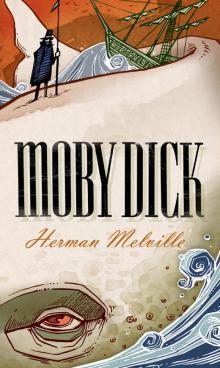 Moby Dick; Or, The Whale
Moby Dick; Or, The Whale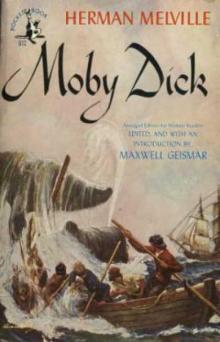 Moby Dick
Moby Dick Benito Cereno and Bartleby the Scrivener
Benito Cereno and Bartleby the Scrivener Israel Potter: His Fifty Years of Exile (Annotated Edition)
Israel Potter: His Fifty Years of Exile (Annotated Edition)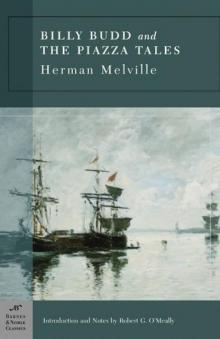 Billy Budd and the Piazza Tales
Billy Budd and the Piazza Tales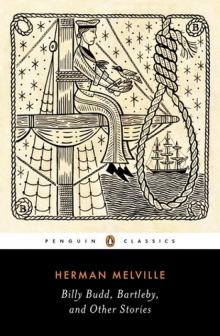 Billy Budd, Bartleby, and Other Stories
Billy Budd, Bartleby, and Other Stories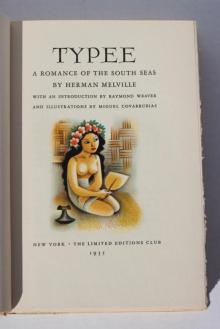 Typee: A Romance of the South Seas
Typee: A Romance of the South Seas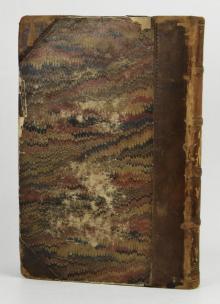 Omoo: Adventures in the South Seas
Omoo: Adventures in the South Seas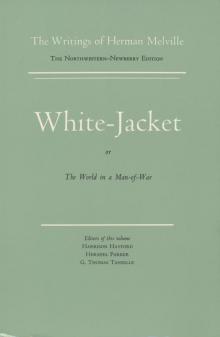 White Jacket; Or, The World on a Man-of-War
White Jacket; Or, The World on a Man-of-War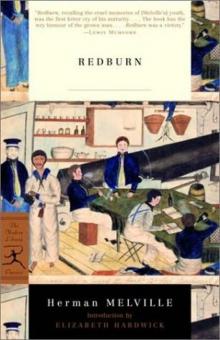 Redburn. His First Voyage
Redburn. His First Voyage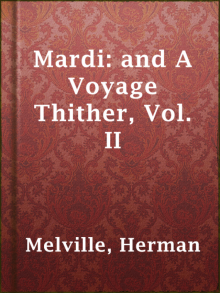 Mardi: and A Voyage Thither, Vol. II
Mardi: and A Voyage Thither, Vol. II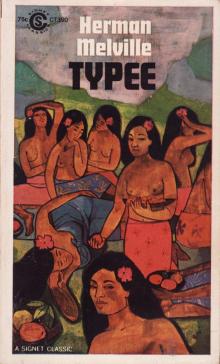 Typee
Typee The Paradise of Bachelors and the Tartarus of Maids
The Paradise of Bachelors and the Tartarus of Maids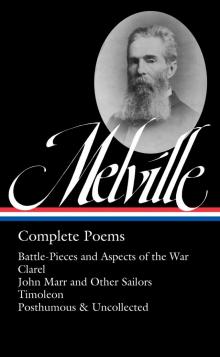 Herman Melville- Complete Poems
Herman Melville- Complete Poems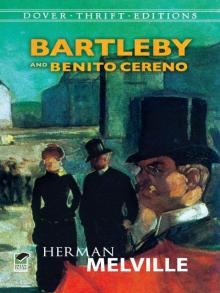 Bartleby and Benito Cereno
Bartleby and Benito Cereno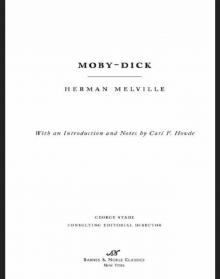 Moby-Dick (Barnes & Noble Classics Series)
Moby-Dick (Barnes & Noble Classics Series)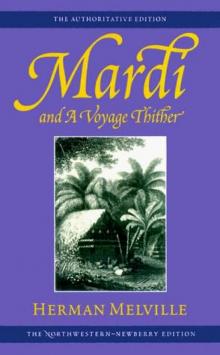 Mardi and a Voyage Thither
Mardi and a Voyage Thither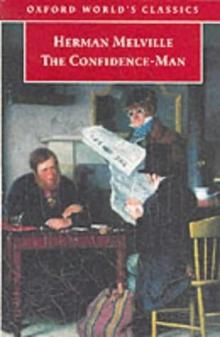 The Confidence-Man
The Confidence-Man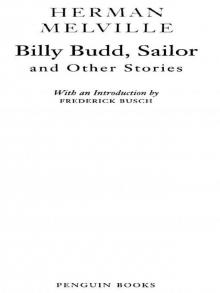 Billy Budd and Other Stories
Billy Budd and Other Stories Bartleby the Scrivener
Bartleby the Scrivener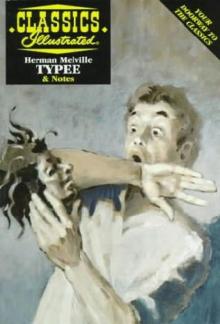 Typee: A Romance of the South Sea
Typee: A Romance of the South Sea I and My Chimney
I and My Chimney Billy Budd
Billy Budd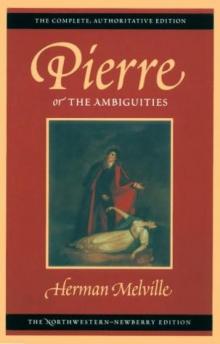 Pierre, Or the Ambiguities
Pierre, Or the Ambiguities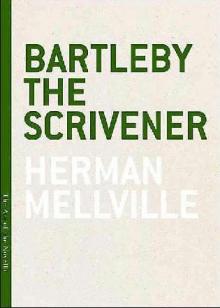 Bartleby, The Scrivener A Story of Wall-Street
Bartleby, The Scrivener A Story of Wall-Street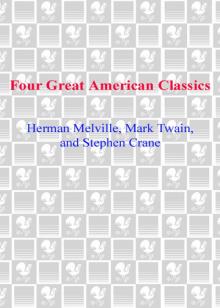 Four Great American Classics
Four Great American Classics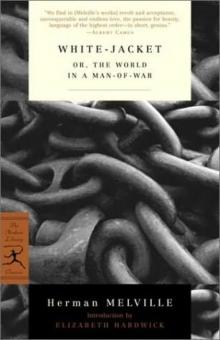 White Jacket or, The World on a Man-of-War
White Jacket or, The World on a Man-of-War The Piazza Tales
The Piazza Tales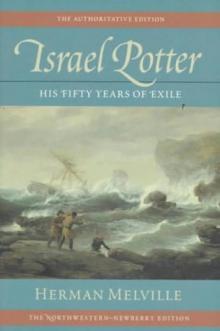 Israel Potter. Fifty Years of Exile
Israel Potter. Fifty Years of Exile